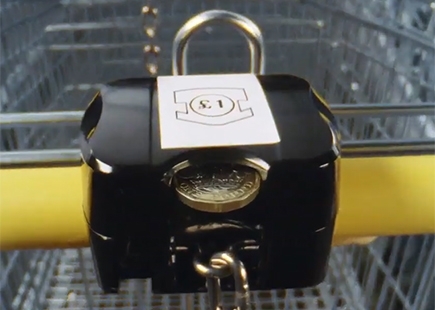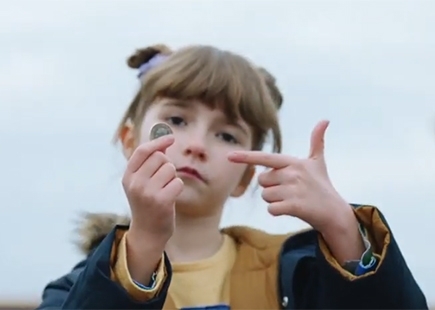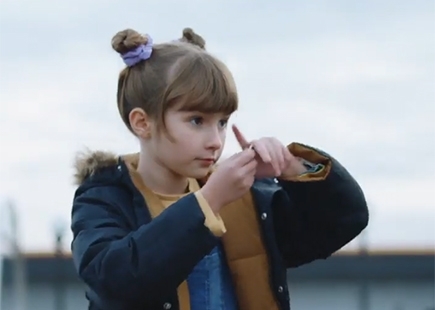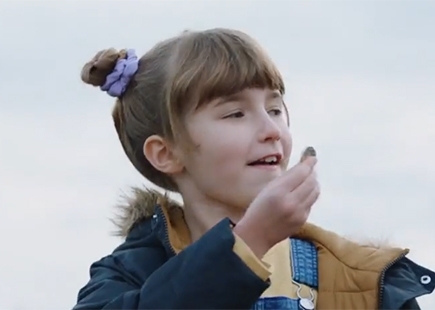Natwest is on the money with this new ad for ‘Money Sense’

The Background
Nobody really likes banks.
A dislike that was only heightened by the perceived culpability of the banks in getting the whole world into such a mess in 2008. That’s why bankers still find it difficult to own up to how they spend their working hours.
Most of us find it difficult to feel an emotional engagement with any of the bank brands - and their advertising.
The public’s perception that somehow RBS, with their high profile and since disgraced CEO Fred Goodwin, had more responsibility for the crash than its high street bank peers finally led, last month, to the 300 year old bank dumping the RBS name in favour of Natwest.
It’s difficult to imagine just how toxic the RBS brand must have become for the decision to be taken to write off the millions of pounds spent over three centuries to build the equity....and, in comparison the confidence in, and belief that the Natwest brand could re-engage with all the group’s customers.
Chairman Howard Davies said: “The board has decided that it is the right time to align the parent name with the brand under which the great majority of our business is delivered.” Yeah.....right.
So, it was in this context that I surprised myself by thoroughly enjoying the Natwest Money Sense commercial the first time I saw it.
Not only did I enjoy it, I made a point of looking out for it and watching it intently every time it came on air again.
Like a good joke that gets better the more often you hear it, because knowledge of the punch-line in advance simply heightens the anticipation, so it was with the film about a swaggering (and thoroughly engaging) little girl and her bubble being burst by her Dad ultimately being smarter than her.
The Big Idea
In a world of unbelievers, it makes good sense for the Natwest brand to avoid vacuous claims in favour of a claim that self-evidently needs the support of factual evidence.
The brand has to ‘walk the walk’.
Moreover, Natwest’s brand claim that ‘We are what we do’ is only meaningful and relevant if the bank is able to demonstrate that what they do is innovative and different from their competitors and matters to their customers.
Money Sense is a fantastic case history with which to exemplify the proposition.
Natwest is in a category where customers are waiting to have their prejudices confirmed, so a failure to provide substantiation for such a claim would leave the bank as a hostage to fortune, most likely misfortune.
David Wheldon, the Group CMO, summed it up perfectly. “For NatWest, our message is that ‘we are what we do’ – and what we have done is build a bank with a tradition of innovation, from opening Britain’s first drive-through bank to being the first bank to offer debit and savings cards for blind and partially sighted customers. NatWest is a proactive, full-service bank, one of the largest lenders to UK businesses and households. It was the first to launch a financial education scheme to children across the country.”
It is his final example, ‘Money Sense’, which provides the most fertile territory for an ad agency to exploit and The&Partnership, with their first film since taking the account over from M&CSaatchi, grasped the opportunity and have not disappointed.
The fact that the bank has been running the schools’ education programme for 25 years is a perfect manifestation of its belief that showing what they do best defines what they stand for.
Money Sense offers free resources to teachers and parents and is complemented with volunteers from the bank who visit schools to support or run lessons. Classroom workshops are based on key moments in a young persons’ life such as budgeting for a party, managing your pocket money, or staying vigilant against fraud and scams. In 2019, NatWest Money Sense reached over 1 million UK children aged 5 to 18.
The big idea behind the creative treatment is that learning how to handle money gives a child an extraordinary level of self-confidence, something that all parents strive to help their children develop.
What They Did
The execution of the idea is simple.
A little girl shows off her swagger.
The ad, directed by The Bobbsey Twins From Homicide at Blink Films, features a confident little girl who clocks the unreturned pound coin left behind by her father in a shopping trolley.
She takes it herself and strolls through the parking lot like a superstar, tossing the coin and gaining admiring looks, particularly from another kid in a passing car, to the soundtrack of ‘This is How We Do It’ by Montell Jordan.
The only let-down for her is that her dad (who is clearly not as stupid as she suspects) remembers the coin and asks for it back.
"We want everyone to feel confident with money so we can all look after the pennies – that's why at NatWest we do money lessons in schools," a narrator declares as the child celebrates her find with magic tricks and with some mild explosions thrown in for good measure.
It was created by Kate Allsop, Howard Green, Matt Wood and Tom Loveless, and has been supported by social media, out-of-home, press and radio activity.
“We wanted to bring a bit of joy, energy and swagger to what can often be a category that at times, can appear a little dull. Luckily, we found a little girl that embodies the confidence that NatWest is giving kids up and down the county with their free Money Sense lessons in schools” said Micky Tudor, executive creative director, The&Partnership, London.






Review
I really like this film. The little girl’s performance is epic.
She brings a sassiness and an innocence to her portrayal, a combination which is nigh on impossible to achieve.
It moves at great pace with Montell Jordan’s 1995 release providing the perfect soundtrack. I love the denouement when the Dad, who we assume until that point is stupid and financially irresponsible (a view clearly shared by his daughter) asks her politely for his pound back, knowing full well that she would have it in her possession.....because she has learnt the value of money.
Her facial expression defines crestfallen. I suppose the fact that I work in advertising heightened my appreciation of it because I could sense its sound strategic foundations, it’s focused proposition and the craft behind its execution.
But then it dawned on me that not only am I a Natwest customer but that I also have a twelve-year-old daughter and as such am right at the heart of the target audience.
And yet, even though the film had grabbed my attention it had failed to sell me on the benefit that Natwest could help my daughter be much smarter when it comes to money.
Am I at fault here or has the film failed in some way? I suspect a bit of both.
In Hindsight
This execution demonstrates the classic dilemma facing creative teams every time they look for solutions with impact and cut through.
This film has both, but with the benefit of hindsight, this may be an example of video vampire where the little girl’s performance is so powerful that it totally dominates the message.
Did I hear the voice-over about money lessons in school and looking after the pennies? I have to admit that I didn’t.
Did I get the message about the little girls’ supreme self-confidence...100%.
But somewhere I failed to make the connection between the Money Sense programme and the benefit she got out of it.
The disconnect was just too great.
I have to admit that the alternative, which would have been to tone down the little girl’s swagger and be more prescriptive with the message is not the answer. The agency was right to err on the side of getting noticed and to do so in a way that makes customers feel affection for their bank.
So why did it not communicate its core message to me? I think it’s because my relationship with my bank is essentially a functional one. Whereas I do care what I feel about an Audi as well as how the car performs, I only care how Natwest performs in helping me manage my accounts.
This is a highly watchable film, with an alluring little girl in the lead role and the creative execution is worthy of 5 out of 5.
But for me, it falls down because the core message is about a very smart and cool little girl rather than one who has learnt that she should 'Count the pennies and the pounds will look after themselves.’
If you enjoyed this article, you can subscribe for free to our weekly email alert and receive a regular curation of the best creative campaigns by creatives themselves.
Published on:



